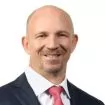Unlike previous hard market cycles, some insurance linked securities (ILS) managers eager to deploy more capacity are struggling to raise capital, and with startups reportedly more challenging to launch, Brad Adderley questions if we're finally approaching a true hard market.
We spoke with Adderley, Bermuda Managing Partner at global law firm Appleby, shortly after the annual meeting of the reinsurance industry in Monte Carlo, to hear his thoughts on the catastrophe bond, ILS and broader re/insurance industry ahead of the key January renewals.
"Yes, the market is hard, but whether it's the best hard market or not, and if it's truly hard, well that remains to be seen," said Adderley.
In Adderley's mind, one sign of a true hard market is when deals don't get done at any price, and we know that one or two cat bonds failed to come to market in the second-quarter.
Another, perhaps more interesting and important sign, though, is the fact that Adderley has been hearing from some managers in the ILS space that they want to deploy more capital in the current market environment, but are finding it difficult to raise funds.
"In previous years, if you and I had this conversation during a hard market, we would be talking about how many new startups will emerge, right, and we're just not hearing that," said Adderley. "What I am hearing," he continued, "is that new startups are harder to form now because of the costs, the implementation, paying for the modeling and so on. All of these things just cost more money and take more time to implement.
"So, if ILS players are saying I wish I had more money to deploy than I have, and raising capital is not as easy as it was, then that says to me that it really is a hard market," said Adderley.
More importantly, according to Adderley, this suggests that investors have been stung so much over the last three years that they're still waiting to see if it's truly the case that it's a hard market.
"So, in a way, this all says that the hard market is going to get harder. It doesn't seem like we're going to see a wave of Class 4's come in," he said.
But while the lack of a new wave of startups might be a deviation from previous firming market cycles, Adderley explained that it could be a positive for the industry as typically, when more money enters the sector, the hard market doesn't last as long.
"Before, a hard mark would be more like climbing up a hill and staying at a plateau for a couple of years before it starts going down because you've got enough money coming in, and as a result, it would last for a couple cycles. Recently cycles have seen capital poured in so quickly that hard markets have only lasted a short period of time – they have been sharp peaks with no plateaus.
"Now, though, it's been building for the last couple of years and price and terms are improving, but compared to eight years or so of downward trend, we're still not where we need to be," said Adderley.
"I just think it's different than previous years, and I think this could be a positive for everyone. You might get people catching up to where they should have been years ago. The hard market might last longer, and maybe it gets even harder. And, then, that might help spur new vehicles in the future because now it's a properly hard market at a time where raising capital is more difficult, and people are pulling out of cat risk," he concluded.
Click here to view the full report.
First Published in Artemis, October 2022
The content of this article is intended to provide a general guide to the subject matter. Specialist advice should be sought about your specific circumstances.

